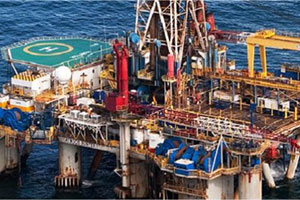
Ghana National Petroleum Corporation (GNPC), one of the partners for the Tweneboa, Enyenra and Ntomme- TEN Oil field project has announced the commencement of commercial oil flow from the field. The oil flow is expected to aid the country’s energy crisis in its quest to become one of Africa’s thriving economies.
Yesterday, President John Mahama, turned on the valves of the John Evans Atta Mills FPSO to mark the commencement of the commercial oil production of the TEN field. Till end of this year, the field is expected to produce more than 23, 000 barrels of oil per day on average.
According to the lead manager of the project from Tullow Oil Ghana Limited, the field full capacity is expected to be at 80,000 barrels of oil per day given that more wells will be brought on board for the oil production in the coming weeks.
Alex Mould, GNPC CEO stated that, the TEN field will generate gas which will be used to boost the country’s energy sector.
‘‘This is a significant day for Ghana and for the national oil company,” said GNPC CEO Alex Mould. “GNPC is pleased to have played its part in bringing the second oil production field into completion, a combination of more than a decade of work which begun with GNPC producing credible data on the oil fields which convinced international investors who will eventually become the TEN future partners to invest in the project,” he added.
The TEN fields project is expected to drive Ghana’s economic growth through marketing of the nation’s crude oil as well as boosting gas supply for industrial and domestic power generate. The fact that the TEN project has come on-stream, just six years after the jubilee field goes a long way to demonstrate the GNPC’s commitment in ensuring that Ghana benefits from its oil and gas resources.
According to the TEN oil field project agreement, Kosmos Energy and Anadarko have 17% share interest each while PetroSA has 3.8% share interest. However, the government of Ghana has commanded 15% share interest while the project lead operator, Tullow Oil Ghana Limited has 47.1% share interest.
Energy supply in Ghana has recently struggled to keep up with the demand despite that electricity is a key determinant of the country’s continued economic growth. The government of Ghana is however, attempting to attract more private sector participation in the sector such as Independent Power Producers (IPPs) who have begun to enter the electricity generation market, previously dominated by the public sector.
